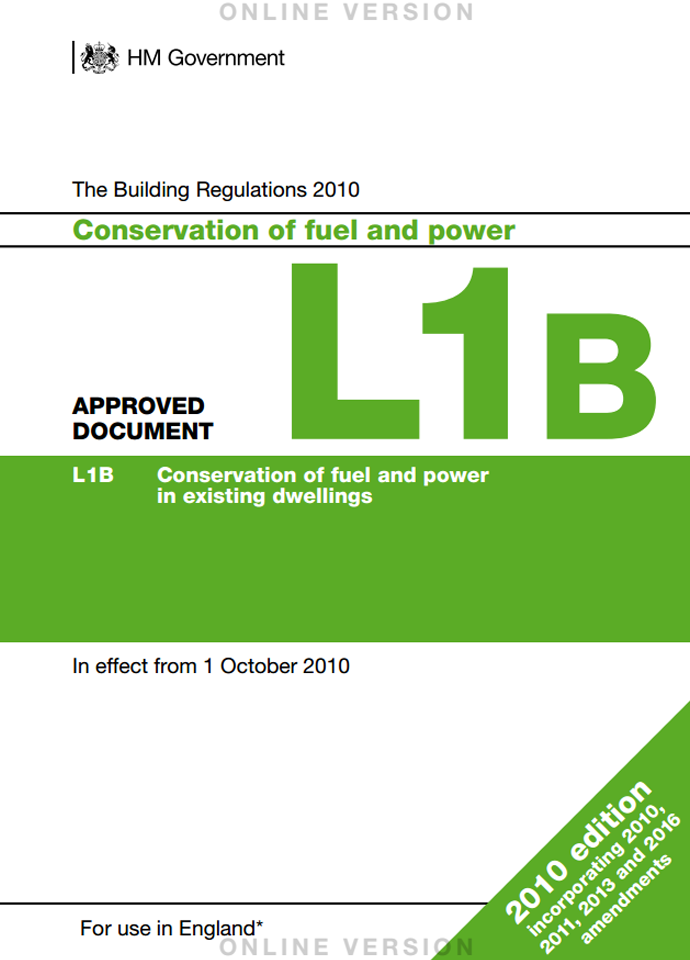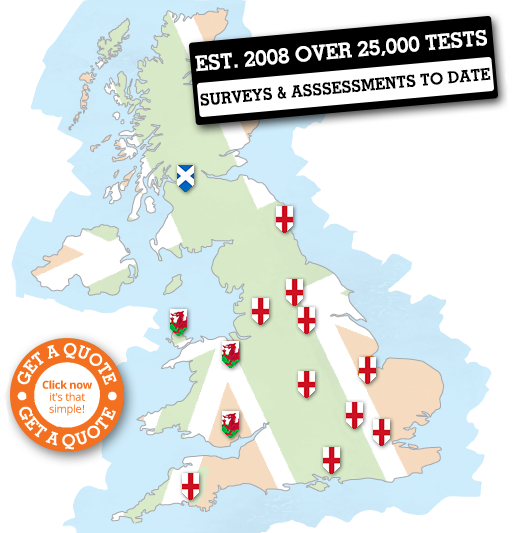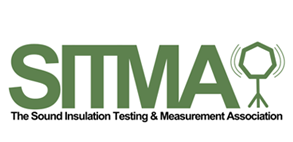Offices Nationwide

Air Testing & Leakage
We have a checklist you can download for Air Leakage Testing. If you follow our air tightness checklist, this will improve your likelihood to achieve a pass!

Point of Reference
10 dBA is the sound level of normal human breathing. To put it into perspective, thunder is a whopping 120 dBA...more
Part L1B
Conservation of fuel and power in Existing Dwellings

Air Testing is sometimes referred to as Domestic Air pressure tests, Domestic Air tightness tests, Domestic Air tests, Domestic Air pressure testing, Domestic Air tightness testing, Domestic Air leakage testing.
Air Leaking Testing Across the UK
Do I Need An Air Leakage Test?
All new buildings in England and Wales have had a mandatory requirement since 2006 (2010 in Scotland) that domestic and commercial buildings, over a certain size, must have a passing air leakage certificate before the property can be sold.
On a large plot of new houses that are built to a similar specification, only a sample of the houses will need to be air tested. This is outlined in Part L of Government building regulations.
Planning your test in advance will help our experience air assessment team covering the UK to determine how many tests you'll need ahead of time per property and will be happy to offer advice on the best ways to gain your air permeability rating.
When Should The Test Take Place?
A building envelope will need to be completed before the air test takes place - which should be one of the last surveys undertaken once all the walls, windows, doors etc. are complete and sealed. This ensures no air will escape and prevent drafts through the property which will in-turn improve your air permeability score.
How Many Properties Need An Air Tightness Test?
If you have 4 or less properties of the same type then only one test needs to be undertaken per type. If you have more than 4 but less than 40 dwellings of a type then you need at least two tests to be done on each type. Finally, if there are more than 40 properties of a particular type then at least 5% of each type needs to be tested UNLESS the first 5 get a passing score - then this can be dropped to just 2%.
What Air Permeability Rating Do I Need?
Your air permeability rating resembles the amount of uncontrolled air that's leaking from the dwelling. A passing score in the UK is 10 m³/(h.m²). If the air test fails, we will help you identify where these leakage areas occur in the hope that a passing rate will be achieved following a re-test.
What Does An Air Leakage Test Involve?
Whilst the air tightness test is being undertaken, furniture will not be affected but smaller items such as paper must be held down or removed completely so they're not blown about. The pressure of the room will be tested and as such all windows and doors that lead outside must be securely closed to avoid them swinging open and the test being abandoned. Similarly, all internal doors should be wedged open to avoid being slammed shut.
Employees can still do their job inside a commercial building in the UK, within reason, though may feel some discomfort due to the noise of the fan and the draught that will be felt throughout the building. There should be no outside access once the test has begun - which lasts for approximately 90 minutes, so plan accordingly.
An air test involves placing a large fan, or several fans, to an opening within the property; usually a doorway. The fans will increase and decrease in speed that will in-turn change the building's air pressure and record the results. Please note: an air test cannot be carried out if wind speed is more than 13mph. 3 metres per second is the ideal wind speed when undertaking an air test in the UK.
Warning: count(): Parameter must be an array or an object that implements Countable in /data04/elite/public_html/Office.php on line 755
For further Air-Testing information for your area, be sure to check out Air-Testing-.co.uk.
Our other services include:
Warning: Invalid argument supplied for foreach() in /data04/elite/public_html/Office.php on line 769
Air Testing can also be known as:
Domestic Air Integrity Testing, Domestic Air Tightness Testing, Domestic House Leakage Testing, House Leakage Testing, Air Tightness Testing, Domestic Air Testing, Air Pressure Testing, Domestic Air Leakage Testing, Domestic Air Pressure Testing, Fan Pressure Testing, Domestic Fan Pressure Testing, Air Leakage Testing, Air Integrity Testing,
Copyright 2025 E2 Specialist Consultants Limited
Company No. 06728970
In Area G
Domestic AIR Tightness Testing in Gainsborough, Domestic AIR Tightness Testing in Galashiels, Domestic AIR Tightness Testing in Gamston, Domestic AIR Tightness Testing in Garston, Domestic AIR Tightness Testing in Gateshead, Domestic AIR Tightness Testing in Gaydon, Domestic AIR Tightness Testing in Gerrards Cross, Domestic AIR Tightness Testing in Gillingham, Domestic AIR Tightness Testing in Gillingham, Domestic AIR Tightness Testing in Glasgow, Domestic AIR Tightness Testing in Glastonbury, Domestic AIR Tightness Testing in Glossop, Domestic AIR Tightness Testing in Gloucester, Domestic AIR Tightness Testing in Godalming, Domestic AIR Tightness Testing in Godmanchester, Domestic AIR Tightness Testing in Godstone, Domestic AIR Tightness Testing in Golborne, Domestic AIR Tightness Testing in Golders Green, Domestic AIR Tightness Testing in Goole, Domestic AIR Tightness Testing in Goring, Domestic AIR Tightness Testing in Gorseinon, Domestic AIR Tightness Testing in Gosforth, Domestic AIR Tightness Testing in Gosport, Domestic AIR Tightness Testing in Gotham, Domestic AIR Tightness Testing in Gourock, Domestic AIR Tightness Testing in Graet Ayton, Domestic AIR Tightness Testing in Grafton, Domestic AIR Tightness Testing in Grange over Sands, Domestic AIR Tightness Testing in Grangemouth, Domestic AIR Tightness Testing in Grantham, Domestic AIR Tightness Testing in Grantown on Spey, Domestic AIR Tightness Testing in Grassendale, Domestic AIR Tightness Testing in Grassinton, Domestic AIR Tightness Testing in Gravesend, Domestic AIR Tightness Testing in Grays, Domestic AIR Tightness Testing in Greasley, Domestic AIR Tightness Testing in Great Missenden, Domestic AIR Tightness Testing in Great Yarmouth, Domestic AIR Tightness Testing in Greater London, Domestic AIR Tightness Testing in Greenford, Domestic AIR Tightness Testing in Greenock, Domestic AIR Tightness Testing in Greenwich, Domestic AIR Tightness Testing in Grimley, Domestic AIR Tightness Testing in Grimsby, Domestic AIR Tightness Testing in Grindley, Domestic AIR Tightness Testing in Guildford,






































